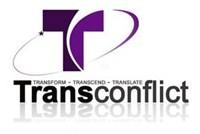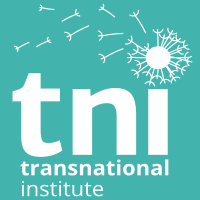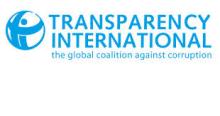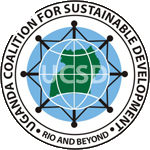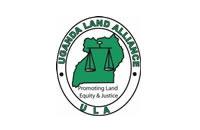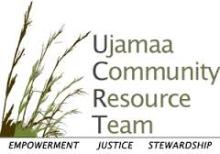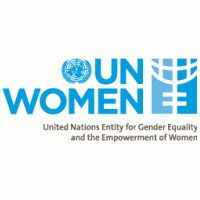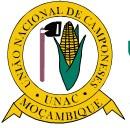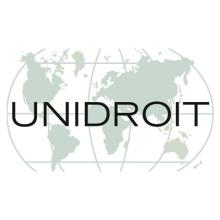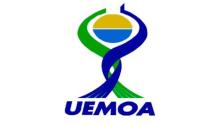The Land Library includes resources from more than 1,900 national and international information providers. Learn more about the organizations and institutions using the Land Portal to share their open-access research, data and stories.
TransConflict
TransConflict undertakes conflict transformation projects and research.
It is TransConflict’s assertion that the successful transformation of conflict requires a multi-dimensional approach that engages with and aims at transforming the very interests, relationships, discourses and structures that underpin and fuel outbreaks of low- and high-intensity violence.
Conflict transformation is a long-term, gradual process, demanding sustained engagement and interaction. Accordingly, TransConflict seeks to contend with the particularities of conflict within specific geographical areas and target groups.
TransConflict focuses on five specific types of transformation (cf. Lederach, Vayrynen – Selected Quotes):
Actor – modifying actors’ goals and their approach to pursuing these goals.
Context – influencing the context in which conflict occurs so as to challenge the meaning and perceptions of conflict itself, particularly the respective attitudes and understandings of specific actors towards one another.
Issue – redefining the issues that are central to the prevailing conflict, and reformulating the position of key actors on those very issues.
Rule – changes in the norms and rules governing decision-making at all levels determine the extent to which conflicts are constructively resolved.
Structural – conflict is underpinned by, and embedded in, the prevailing structure of relationships, power distributions and socio-economic conditions, changes to which impact the very fabric of interaction between previously incompatible actors, issues and goals.
TransConflict regards conflict not as an isolated event, but as an integral part of the transformation of the whole range of societal relationships. TransConflict therefore endeavours to respond to the changing social, regional and international context and their implications for the dynamics of conflict.
Transnational Institute
The Transnational Institute (TNI) is an international research and advocacy institute committed to building a just, democratic and sustainable world. For more than 40 years, TNI has served as a unique nexus between social movements, engaged scholars and policy makers.
The Transnational Institute (TNI) is an international research and advocacy institute committed to building a just, democratic and sustainable world.
Founded in 1974 as a network of ‘activist scholars’, TNI continues to be a unique nexus between social movements, engaged scholars and policy makers.
TNI has gained an international reputation for carrying out well researched and radical critiques and anticipating and producing informed work on key issues long before they become mainstream concerns, for example, our work on food and hunger, third world debt, transnational corporations, trade, and carbon trading.
As a non-sectarian institute, TNI has also consistently advocated alternatives that are both just and pragmatic, for example developing alternative approaches to international drugs policy and providing support for the practical detailed work of public water services reform.
TNI's Projects
TNI works on a wide range of interlinking issues. The constant interaction between fellows and projects gives TNI a unique, broad and informed perspective and enables a cross-disciplinary approach to complex global problems.
TNI's work currently includes:
- Leadership as a respected global voice on drugs policy, promoting a pragmatic approach to tackling illegal drugs based on harm reduction principles.
- Supporting a dynamic international network involved in building participatory, public sector water as the best way to achieve the goal of water for all
- Confronting the dogma of trade liberalisation, which like financial liberalisation has led to increased inequality, and helping to construct regional alternatives, such as the Bolivarian Alternative for the Americas, based on regional cooperation and solidarity
- Analysing and exposing the democratic dangers posed by the concentration of corporate power and proposing new legal frameworks of accountability for transnational corporations.
- Engaging with democratic innovations and experiments undertaken by social movements, progressive political parties and governments worldwide helping to empower communities to gain control over their lives and environment
- Drawing together and analysing the links between the different elements of the systemic crisis —financial, environmental and social.
Transparency International
About
One global movement sharing one vision: a world in which government, business, civil society and the daily lives of people are free of corruption.
In 1993, a few individuals decided to take a stance against corruption and created Transparency International. Now present in more than 100 countries, the movement works relentlessly to stir the world’s collective conscience and bring about change. Much remains to be done to stop corruption, but much has also been achieved, including:
- the creation of international anti-corruption conventions
- the prosecution of corrupt leaders and seizures of their illicitly gained riches
- national elections won and lost on tackling corruption
- companies held accountable for their behaviour both at home and abroad
Mission
Our Mission is to stop corruption and promote transparency, accountability and integrity at all levels and across all sectors of society.
Vision
Our Vision is a world in which government, politics, business, civil society and the daily lives of people are free of corruption.
Values
- Transparency
- Accountability
- Integrity
- Solidarity
- Courage
- Justice
- Democracy
Programmes
For specific information about TI's work on land corruption, see here.
TRANSPARENCY INTERNATIONAL SOUTH AFRICA (CORRUPTION WATCH)
Corruption Watch is a non-profit organisation launched in January 2012. We rely on the public to report corruption to us. We use the reports as an important source of information to fight corruption and hold leaders accountable for their actions.
Corruption Watch provides a platform for reporting corruption. Anyone can safely share what they experience and observe and can speak out against corruption. Our communication channels include our website, an SMS line, social media, email or post.
We investigate selected reports of alleged acts of corruption, in particular those cases that have the most serious impact on our society. For instance, these may be cases involving basic health or education services which affect the most disadvantaged South Africans. We hand our findings over to the relevant authorities to take further action, and we monitor the progress of each case. We work with mainstream and community media to make sure that corruption is fully exposed through our investigative work.
We gather and analyse information to identify patterns and hot spots of corruption. We prepare research reports on these hot spots to expose and find solutions to systemic corruption. Using our own communication platforms and the media, we share our findings with the public, like-minded non-governmental organisations and public sector bodies, all of which are undermined by corruption.
We build campaigns that mobilise people to take a stand against corruption. Our campaigns involve the public, community groups and other organisations such as trade unions.
Communication
Investigation
Research
Mobilisation
Tribunal Agroambiental
Máximo Tribunal especializado de la Jurisdicción Agroambiental del Estado Plurinacional de Bolivia.
Misión
“El Tribunal Agroambiental y los Juzgados Agroambientales son responsables de impartir justicia especializada en materia agraria, forestal, pecuaria, ambiental, aguas y biodiversidad, sobre la base de los principios de función social, integralidad, inmediatez, sustentabilidad, e interculturalidad, comprometidos con la protección de los derechos de las bolivianas, los bolivianos y de la Madre Tierra, a través de la vigencia plena e irrestricta de la Constitución Política del Estado y las Leyes vigentes”.
Visión
“El Tribunal Agroambiental y los Juzgados Agroambientales son instituciones reconocidas socialmente por la defensa de los derechos fundamentales de la Madre Tierra, de las bolivianas y de los bolivianos, de la presente y futuras generaciones, facilitando y garantizando la justicia en materia agroambiental, mediante sus fallos; integrada por servidoras y servidores judiciales honestos y especializados en la materia, desarrollando políticas adecuadas de transparencia, calidad de servicio y de mejora contínua en sus procesos”.
Jurisdicción Agroambiental
La Jurisdicción Agroambiental forma parte del Órgano Judicial, cuya función se ejerce conjuntamente con las Jurisdicciones Ordinaria, Especializada e Indígena Originaria Campesina. Desempeña una función especializada y le corresponde impartir justicia en materia agraria, pecuaria, forestal, ambiental, aguas y biodiversidad; que no sea de competencia de autoridad administrativa.
Tricontinental
Missão
O Instituto Tricontinental de Pesquisa Social é uma instituição internacional, orientada pelos movimentos populares, focada em estimular o debate intelectual para o serviço das aspirações do povo.
Nossa história
O significado do Tricontinental:
Em janeiro de 1966, o povo cubano organizou o Tricontinental, uma conferência de movimentos revolucionários da África, Ásia e América Latina (Primera Conferencia de Solidaridad de los Pueblos de Africa, Asia, America Latina). Esta conferência surgiu de duas dinâmicas.
- Estados que emergiram do movimento anticolonial criaram, em 1961, o Movimento dos Países Não-Alinhados (MNA), que incluía não apenas regimes radicais, mas também aqueles com uma atitude mais conciliatória em relação ao imperialismo.
- Fora da MNA, existiam movimentos com guerras anti-coloniais inacabadas de libertação nacional que tinham uma vantagem mais radical para eles e que haviam sido reunidas em 1957 na Organização Solidária do Afro-Asiático (AAPSO).
As plataformas MNA e AAPSO geralmente colaboravam entre si. Eles forneceram o espaço cultural do qual o Tricontinental emergiria.
No Tricontinental, o AAPSO foi expandido para a Organização de Solidariedade com os Povos da Ásia, África e América Latina (OSPAAAL), cujo secretariado continua a funcionar em Havana (Cuba). O Tricontinental estabeleceu um marco: paz e socialismo eram os objetivos, e quaisquer meios que levassem a esse objetivo tinham que ser utilizados. De Havana, a OSPAAAL forneceu a infra-estrutura para o entendimento mútuo entre os movimentos nos três continentes. Continuam produzindo a fabulosa revista Tricontinental, que ficou famosa como fornecedora de cartazes emblemáticos que levaram adiante a mensagem do socialismo anticolonial.
A partir dessas histórias – tanto da MNA quanto da OSPAAAL – surgiu uma série de iniciativas importantes, muitas enraizadas nas Nações Unidas. Algumas delas são organizações intergovernamentais (como o The South Center, com sede em Genebra), enquanto outras têm pouco apoio governamental. O que une estas iniciativas é um compromisso com o Sul – nomeadamente com os países que continuam a lutar contra as histórias e estruturas do imperialismo – mas também com a humanidade em geral. Uma filosofia social e política genuinamente baseada no Sul deve se expandir a partir do Sul e abraçar o mundo e suas possibilidades.
Nós, no Instituto Tricontinental de Pesquisa Social, somos uma orgulhosa continuação da herança da conferência Tricontinental e estamos honrados em colaborar com a OSPAAAL para trabalhar na construção de um mundo de paz e justiça. Nós nos posicionamos, nas palavras de Franz Fanon, com os miseráveis da terra para criar um mundo de seres humanos.
Trócaire
Trócaire is the overseas development agency of the Catholic Church in Ireland.
Trócaire was established in 1973 as a way for Irish people to donate to development and emergency relief abroad. Our dual mandate is to support the most vulnerable people in the developing world, while also raising awareness of injustice and global poverty at home.
Our work is guided by Catholic Social Teaching, recognising the inherent dignity, worth and human rights of all people, as well as the importance of acting in solidarity with each other and in caring for our shared environment. We offer support regardless of race, gender, religion or politics.
Tropenbos International
Tropenbos International envisions a future in which forests and trees are used sustainably for the benefit of local people and the global community. By using evidence to make conscious choices and finding the right balance between the needs of all the stakeholders involved, we contribute to sustainable solutions for forested landscapes.
Tropenbos International (TBI) brings the knowledge together to address complex questions regarding sustainable management of forests and trees, organizes interactions with all the stakeholders and actively helps to create broad support.
We started in 1986 as a Dutch non -governmental non-profit organization, in 2017 we became a network of independent member organisations. We work in more than ten countries in the south, through our network of six local members and collaborations with partners elsewhere.
Tropical Agricultural Research and Higher Education Center
The Tropical Agricultural Research and Higher Education Center (CATIE) is a regional center dedicated to research and graduate education in agriculture, and the management, conservation and sustainable use of natural resources. Its members include Belize, Bolivia, Colombia, Costa Rica, Dominican Republic, El Salvador, Guatemala, Honduras, Mexico, Nicaragua, Panama, Paraguay, Venezuela, the Inter-American Institute for Cooperation on Agriculture (IICA) and the State of Acre in Brazil.
True Price
True Price is a social enterprise that aims to contribute to the creation of an economy that creates value for all. We do so by helping organizations quantify, value, and improve their impact on society. We assist multinationals, SMEs, NGOs, and governmental organizations with risk management and strategic decision making by providing insights into their impacts and their associated risks and opportunities.
Tshintsha Amakhaya
Tshintsha Amakhaya is a civil society alliance for land and food justice in South Africa. Rural women and men stand united in solidarity to advance their rights and secure livelihoods.
Our members are farm workers, farm dwellers, smallholder farmers, fisher folk, forest dwellers, livestock keepers, people on communal land and people on church land
TTY Corporation Co., Ltd
TTY Corporation Co., Ltd. was registered with the Ministry of Commerce on April 27,2004 with Ref: CO.6791/04P and incorporated in Phnom Penh on April 30, 2004 as a holding company to hold all its wholly- owned and majority owned subsidiaries under one name. The company is a diversified agro-based company with total assets worth approximately USD150,000,000. The company is owned by Madam Seng TOUCH as a sole shareholder. It is involved in various businesses, namely the production of rubber latex and tapioca starch, Biogas Power Plant, Crumb Rubber Processing, Logistics and Industrial equipments for hire, Four Points By Sheraton Angkor, TOTAL gas station and planning for residential resort, etc.
The management of the company rests in hand of a Chief Executive Officer (CEO), who reputed with extensive experience in agro-industry business. The management of the CEO is supported by dedicated directors of high-calibre professionals and experts with well-hand skills in their respective fields, agronomy, engineering, architecture, finance and management.
Tudor Rose
Tudor Rose is a publishing and marketing services company based in Leicester, UK. During the past two decades we’ve worked for a range of businesses from global household names to local startups, to help turn their marketing visions into reality. From customer magazines and corporate brochures, to logo design and websites and much more in between, our design, copywriting and management services help you to attract profitable new customers and reinforce your brand message.
U4 Anti-Corruption Resource Centre
At U4, we work to reduce the harmful impact of corruption on society. We share research and evidence to help international development actors get sustainable results.
We have studied how corruption threatens development outcomes since 2003. Together with global research networks and practitioners, we pursue emerging topics and advance the anti-corruption field. U4 is a permanent centre at the Chr. Michelsen Institute (CMI) in Norway. CMI is a non-profit, multi-disciplinary research institute with social scientists specialising in development studies.
The U4 partners’ development agendas inspire our independent research. We apply academic rigour to explain the complex nature of corruption. We communicate practical entry-points for countering corruption – through dialogue, publications, online training, workshops, helpdesk, and innovation. Choose between a quick knowledge foundation and in-depth analysis – or have both.
Uganda Coalition for Sustainable Development
The UCSD is a network or more than 40 NGOs dedicated to coordinate advocacy and lobby work around issues and commitments made by world governments towards sustainable development, inspired by the Rio+ 10 project (Civil Society project for preparation of the Johannesburg Summit of 2002).
The UCSD was registered in November 2004 as an NGO (Reg. No. S5914/5345). Since its inception in 2001, UCSD has actively participated in Uganda Civil Society preparations for the Johannesburg Summit on sustainable development;
In 2006 – 2009, under the umbrella of the East African SusWatch Network, UCSD has been working with Tanzania Coalition for Sustainable Development and Kenya SusWatch Network to implement the East African Civil Society Watchdog Project for Sustainable Development in the Lake Victoria basin (2006 - 2009) with support from Sida (Phase I). One of the key achievements has been preparation of information communication and education materials for awareness raising and advocacy. One of these has been the Civil Society Watchdog Discussion Paper series aimed to influence technocrats and decision-makers involved in the East African Cooperation (especially Lake Victoria basin development) over a wide range of issues including climate change adaptation, solid waste management, among others. Another Phase of engagement is expected to start later this year.
The Vision of the Coalition is humanity sharing the resources of our planet in a Sustainable manner guided by the principles of universal justice as set in Rio and subsequent summits.
Our Mission is to contribute to sustainable development through follow up of the Johannesburg summit outcomes and subsequent global declarations in Uganda.
Our development objective of the Coalition is to increase the public participation and civil society network’s advocacy in order to influence and enhance implementation of national, regional and International levels of the Johannesburg Plan of Implementation.
Uganda Land Alliance
The Uganda Land Alliance (ULA) is a membership consortium of national, regional and international civil society organizations and individuals, lobbying and advocating for fair land laws and policies that address the land rights of the poor, disadvantaged and vulnerable groups and individuals in Uganda.
The Alliance was established in 1995 as an independent non-governmental legal entity, registered as a company limited by guarantee.
Vision
Ugandan society where there is equitable access and control over land, and where the poor women, men and children are actively participating to eradicate poverty.
Mission
To enhance access, control, and ownership of land by the poor and marginalized women, men, and children through the promotion of fair laws and policies aimed at protecting their land rights.
Objectives
1. Increased land rights awareness among poor women, men, children, and other marginalized groups
2. Lobby and advocate for fair land laws and policies to protect and promote the land rights of poor women, men, children and other marginalized groups
3. Effective participation of members in the Alliance’s programs, and enhanced collaboration with other organizations and institutions
4. Efficiency and effectiveness in the planning and management of the Alliance’s programs
Uganda Land Commission
Roles and Functions of Uganda Land Commission
The 1995 Constitution Art.239 lays out the functions of ULC as to hold and manage any land in Uganda vested in or acquired by Government of Uganda in accordance with the provisions of the Constitution and such other functions as may be prescribed by Parliament.
The Land Act, Cap 227 (sec 49) lays out the functions of ULC as follows;
- Hold and manage any land in Uganda which is vested in or acquired by the Government in accordance with the Constitution.
- Where applicable, hold and manage any land acquired by the Government abroad, except that the Commission may delegate the management of such land to Uganda’s Missions abroad.
- Procure certificates of title for any land vested in or acquired by the Government;
- Perform such other functions as may be prescribed by or under the Land Act or any other enactment;
- Sec 41(2) of the Land Act places management of the Land Fund (LF) to the Uganda Land Commission.
Uganda Legal Information Institute
The Uganda Legal Information Institute (ULII) is an internet facility that provides the public with legal information relating to Uganda, with a view of promoting and supporting the rule of law.
ULII publishes public legal information- that is decisions of courts, legislation and some publicly available secondary legal materials created by public bodies for purposes of public access, for example the Justice Law and Order Sector(JLOS), the Uganda Law Reform Commission and the Uganda Law Reform Commission (ULRC).
ULII has obtained the kind assistance of the Southern African Legal Information Institute (SAFLII) and the AfricanLII (African Legal Information Institute) in its development and is a member of the free access to law movement.
The Law Reporting department is a department of the Judiciary of Uganda and is currently operating at the Judicial Studies Institute. The department carries out various activities including on-line publication of case law and laws of Uganda.
The Uganda legal information institute (ULII) is an internet facility that provides the public with legal information relating to Uganda, with a view of promoting and supporting the rule of law. The website can be accessed on www.ulii.org.
ULII publishes legal information that is: legally significant decisions of courts, legislation, treaties and some publicly available secondary legal material created by public bodies for purposes of public access for example the JLOS (Justice Law and Order Sector) and the ULRC (Uganda Law Reform Commission).
The decisions of court that are published are from all courts of record, that is; the Supreme Court, Court of Appeal, Constitutional Court, High Court, Commercial Court, as well as CADER(Centre for Arbitration and Dispute Resolution) together with an electronic citation for each decision.
Objectives:
- Improve on-going collection of case law in electronic format from courts of record
- Ensure completeness of the database for covered years for all courts
- Scanning of older collection
- To digest the judgments to enhance the textual search capacity online
- Improve use of the website by conducting training and promotion
- Publish law reports from the case law already online.
- Publication of treaties entered into by the government of Uganda with other government and international organisations.
Ujamaa Community Resource Team
Some of East Africa's most traditional pastoralist and hunter-gatherer communities are currently at great risk of loosing their land and resources due to progressive land encroachment and lack of representation in modern Tanzania.
UCRT works to empower marginalised people in the rangelands of northern Tanzania to secure rights to their natural resources and land.
UCRT helps these communities by representing their land rights, advocating on their behalf to local and national government, and securing legal ownership of their traditional lands.
We also help empower these communities to independently and effectively manage their land and resources, and to improve education, women's protection and advocacy, as well as their leadership and representation among the wider Tanzanian community.
UKnowledge
UKnowledge is a digital collection of unique scholarship created by University of Kentucky faculty, staff, students, departments, research centers, and administration. As a strategic initiative launched by UK Libraries to support multidisciplinary collaboration, UKnowledge is managed by specialists and sustained by dedicated funding. It captures, stores, organizes, and provides open and stable worldwide access to UK’s intellectual capital, and also facilitates reuse of deposited materials to the extent warranted by copyright law or by the licensing terms of the concerned materials. Members of UK’s academic community are encouraged to contribute their scholarship to UKnowledge. More information about UKnowledge is available from this guide. The ISSN for UKnowledge is 2476-2350.
UKnowledge also serves as a free online resource for people who are looking for information on a variety of topics. Click here to see what people have to say about UKnowledge.
UN Environment World Conservation Monitoring Centre
UN Environment World Conservation Monitoring Centre (UNEP-WCMC) is a world leader in biodiversity knowledge. It works with scientists and policy makers worldwide to place biodiversity at the heart of environment and development decision-making to enable enlightened choices for people and the planet.
UNEP-WCMC is an executive agency of the United Nations Environment Programme, based in Cambridge in the United Kingdom. UNEP-WCMC has been part of UNEP since 2000, and has responsibility for biodiversity assessment and support to policy development and implementation. The World Conservation Monitoring Centre was previously an independent organization jointly managed by IUCN, UNEP and WWF established in 1988, and prior to that the Centre was a part of the IUCN Secretariat.
UN Permanent Forum on Indigenous Issues
The Permanent Forum is an advisory body to the Economic and Social Council established by resolution 2000/22 on 28 July 2000. The Forum has the mandate to discuss indigenous issues related to economic and social development, culture, the environment, education, health and human rights.
According to its mandate, the Permanent Forum will:
- provide expert advice and recommendations on indigenous issues to the Council, as well as to programmes, funds and agencies of the United Nations, through ECOSOC;
- raise awareness and promote the integration and coordination of activities related to indigenous issues within the UN system;
- prepare and disseminate information on indigenous issues The Permanent Forum holds annual two-week sessions.
UN Women
UN Women is the United Nations entity dedicated to gender equality and the empowerment of women. A global champion for women and girls, UN Women was established to accelerate progress on meeting their needs worldwide.
UN Women supports UN Member States as they set global standards for achieving gender equality, and works with governments and civil society to design laws, policies, programmes and services needed to ensure that the standards are effectively implemented and truly benefit women and girls worldwide. It works globally to make the vision of the Sustainable Development Goals a reality for women and girls and stands behind women’s equal participation in all aspects of life, focusing on four strategic priorities:
- Women lead, participate in and benefit equally from governance systems
- Women have income security, decent work and economic autonomy
- All women and girls live a life free from all forms of violence
- Women and girls contribute to and have greater influence in building sustainable peace and resilience, and benefit equally from the prevention of natural disasters and conflicts and humanitarian action
UN Women also coordinates and promotes the UN system’s work in advancing gender equality, and in all deliberations and agreements linked to the 2030 Agenda. The entity works to position gender equality as fundamental to the Sustainable Development Goals, and a more inclusive world.
UN Women training centre
Training for gender equality is an essential component for UN Women’s commitment to advance gender equality and women’s empowerment.
Vision: To become the leading UN centre that contributes, through training for gender equality, to building a society that respects and promotes human rights for all women and men.
Mission: The Training Centre is dedicated to supporting the UN and other stakeholders to realize commitments to gender equality, women’s empowerment and women’s rights through transformative training and learning.
Training for gender equality is a transformative process that aims to provide knowledge, techniques and tools to develop skills and changes in attitudes and behaviours. It is a continuous and long-term process that requires political will and commitment of all parties in order to create an inclusive, aware and competent society to promote gender equality.
It is a strategy to effect individual and collective transformation towards gender equality through consciousness raising, empowering learning, knowledge building, and skill development. Training helps men and women to build gender competence and acquire the knowledge and skills necessary for advancing gender equality in their daily lives and work. Training for gender equality is part and parcel of delivering our commitments to equal human rights for all.
The TC approach to training for gender equality is guided by key international normative instruments, in particular:
- Convention on the Elimination of All Forms of Discrimination against Women (CEDAW)
- Beijing Platform for Action
Watch a short video to learn more about the Training Centre:
UN-REDD Programme
Deforestation and forest degradation account for approximately 11 percent of carbon emissions, more than the entire global transportation sector and second only to the energy sector. It is now clear that in order to constrain the impacts of climate change within limits that society will reasonably be able to tolerate, global average temperatures must be stabilized within two degrees Celsius. This will be practically impossible to achieve without reducing emissions from the forest sector, in addition to other mitigation actions.
Reducing emissions from deforestation and forest degradation (REDD+) is a mechanism developed by Parties to the United Nations Framework Convention on Climate Change (UNFCCC). It creates a financial value for the carbon stored in forests by offering incentives for developing countries to reduce emissions from forested lands and invest in low-carbon paths to sustainable development. Developing countries would receive results-based payments for results-based actions. REDD+ goes beyond simply deforestation and forest degradation and includes the role of conservation, sustainable management of forests and enhancement of forest carbon stocks.
Uniao Nacional de Camponeses
A UNAC é um movimento de Camponeses, do sector familiar, que luta pela participação activa dos camponeses no processo de desenvolvimento de Moçambique fundado em 1987 e registada em 1994. As mudanças políticas e económicas que se operaram em 1987 motivaram o surgimento desta movimento
Unidad de Planificación Rural Agropecuaria
Es función de la UPRA orientar la formulación y ejecución de políticas públicas para la planificación del ordenamiento productivo y de la propiedad rural, con el fin de promover el uso eficiente del suelo para el desarrollo rural agropecuario con enfoque territorial.
UNIDROIT
UNIDROIT is an intergovernmental, Rome-based organisation specialising in the harmonisation and modernisation of private law rules at the global level, through international treaties and soft law instruments in several areas. UNIDROIT has earned widespread recognition for its activities in the area of contract law, in particular with the UNIDROIT Principles of International Commercial Contracts. In partnership with FAO and IFAD, UNIDROIT prepared a Legal Guide on Contract Farming, released in 2015, which intends to promote good practices between farmers and buyers of agricultural commodities by enhancing knowledge and awareness of the legal regime applicable to contract farming operations.
Unión Agroganadera de Álava-Arabako Nekazarien Elkartea
UAGA - Quiénes somos
La Unión Agroganadera de Álava-Arabako Nekazarien Elkartea, es una Organización Profesional Agraria, sin ánimo de lucro, cuyo principal objetivo es defender los intereses de las personas agricultoras y ganaderas de Álava y Treviño. Se define como una organización independiente, ajena a afiliaciones políticas o intereses partidistas. Es un sindicato unitario, democrático, independiente y asambleario, donde se reúnen todos/as y solamente los/las agricultores/as, ganaderos/as y forestales, hombres y mujeres, que viven del campo principal o secundariamente, sin ningún tipo de discriminación por motivos religiosos, ideológicos, políticos o de sexo.
UAGA cuenta con cerca de 1.500 explotaciones agrarias afiliadas, en su mayoría pequeñas y medianas explotaciones familiares. UAGA es la única organización agraria existente en Álava.
UAGA nació en el año 1977, fruto de la inquietud y necesidad del sector de agruparse, con el fin de conseguir el reconocimiento de la sociedad. El carácter reivindicativo ha sido su seña de identidad, presionando a las administraciones a favor del mantenimiento y pervivencia del sector primario, a través de la generación de empleo que permita mantener vivos nuestros pueblos.
UAGA durante estos años ha logrado constituirse como el referente del sector en Álava, siendo el principal interlocutor del sector ante las administraciones y ante los diferentes agentes sociales.
UAGA forma parte de la confederación de sindicatos agrarios EHNE-UGAV (Euskal Herriko Nekazarien Elkartasuna – Unión de Agricultores y Ganaderos Vascos), formada por las organizaciones agrarias de Alava, Gipuzkoa y Navarra y que es la interlocutora válida en las relaciones con Gobierno Vasco.
En el ámbito estatal UAGA forma parte de la Coordinadora de Organizaciones de Agricultores y Ganaderos –COAG- de la que es fundadora. También UAGA, a través de EHNE, participa en la coordinadora europea CPE (Coordination Paysanne Européenne – Coordinadora Campesina Europea), que a su vez forma parte de Vía Campesina como unión internacional de organizaciones agrarias.
Union Economique et Monétaire Ouest Africaine
L’Union économique et monétaire ouest-africaine (UEMOA) est une organisation ouest-africaine qui a comme mission la réalisation de l'intégration économique des États membres, à travers le renforcement de la compétitivité des activités économiques dans le cadre d'un marché ouvert et concurrentiel et d'un environnement juridique rationalisé et harmonisé.

